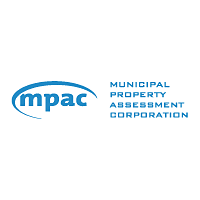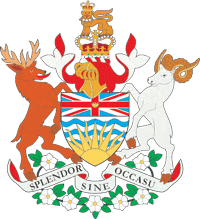The British Columbia Assessment Authority is a publicly owned Crown Corporation in the Province of British Columbia, Canada. BC Assessment was created in 1974, as a result of a provincial government all-party committee unanimous recommendation that an independent assessment agency be created.
Its mandate is to provide property assessment values for property owners in the province. This information is primarily used in the calculation of property tax payable to the provincial government or relevant municipality in British Columbia. In 2009, some $6 billion (CAD) was raised in B.C. from property tax levies. In 2009, the total value of assessments in the province were $969 billion. By 2010, that number had grown to $1.04 trillion. Most assessments are of the market value of the real property.
In 2009 (for the 2010 roll), assessment appeals remained low, compared to many other property-taxing provinces and states. Some 98.5% of assessments were accepted without appeal.
BC Assessment has approximately 650 full-time staff positions in 17 offices throughout the province. B.C. Assessment's annual budget is just over $77 million.

Alberta is one of the thirteen provinces and territories of Canada. It is a part of Western Canada and is one of the three prairie provinces. Alberta borders British Columbia to the west, Saskatchewan to the east, the Northwest Territories to the north, and the U.S. state of Montana to the south. It is one of the only two landlocked provinces in Canada, with Saskatchewan being the other. The eastern part of the province is occupied by the Great Plains, while the western part borders the Rocky Mountains. The province has a predominantly continental climate but experiences quick temperature changes due to air aridity. Seasonal temperature swings are less pronounced in western Alberta due to occasional Chinook winds.
A property tax is an ad valorem tax on the value of a property.
Hollywood North is a colloquialism used to describe film production industries and/or film locations north of its namesake, Hollywood, California. The term has been applied principally to the film industry in Canada, specifically to the cities Toronto and Vancouver.
The harmonized sales tax (HST) is a consumption tax in Canada. It is used in provinces where both the federal goods and services tax (GST) and the regional provincial sales tax (PST) have been combined into a single value-added tax.
In Canada, taxation is a prerogative shared between the federal government and the various provincial and territorial legislatures.
Tumbler Ridge is a district municipality in the foothills of the B.C. Rockies in northeastern British Columbia, Canada, and a member municipality of the Peace River Regional District. With a population of 2,399 (2021) living in a townsite, the municipality encompasses an area of 1,558 km2 (602 sq mi) of mostly Crown land. The townsite is located near the confluence of the Murray River and Flatbed Creek and the intersection of Highway 52 and Highway 29 and includes the site of the Tumbler Ridge Secondary School and Tumbler Ridge Airport. It is part of the Peace River South provincial electoral district and the Prince George—Peace River—Northern Rockies federal riding.
British Columbia's Agricultural Land Reserve (ALR) is a collection of land where agriculture is designated as the priority use. Farming is encouraged and non-agricultural uses are restricted.
The British Columbia Legislature raids resulted from search warrants executed in 2003 on the British Columbia Parliament Buildings, the seat of the British Columbia Legislature, the government of the Canadian province of British Columbia. It became a collective term for the associated criminal proceedings and ensuing controversies. Court hearings stemming from the raids began in Supreme Court of British Columbia in April 2007. The proceedings brought to light questions concerning the propriety of the sale of railway company BC Rail. In October 2010, ministerial aides Dave Basi and Bob Virk pleaded guilty to breach of trust and receiving a benefit for leaking information about the BC Rail bidding process.
Alberta Municipal Affairs is a ministry of the Executive Council of Alberta. Its major responsibilities include assisting municipalities in the provision of local government, administering the assessment of linear property in Alberta, administering a safety system for the construction and maintenance of buildings and equipment, and managing Alberta's network of municipal and library system boards.

The British Columbia Sheriff Service (BCSS) is a provincial law enforcement agency overseen by the Ministry of the Attorney General in the province of British Columbia, Canada. Founded in 1857, it is the oldest law enforcement agency in the province. Sheriffs are provincial peace officers appointed under the BC Sheriff Act and BC Police Act with authority to enforce all relevant federal and provincial acts, including the criminal code throughout British Columbia while in the lawful execution of their duties.

The Municipal Property Assessment Corporation (MPAC) administers property assessments and appeals of assessment in the province of Ontario, Canada. MPAC determines the assessed value for all properties across Ontario. This is provided in the form of an Assessment Roll, which is delivered to municipalities throughout the province on the second Tuesday in December. Municipalities then take the assessment roll, and calculate property taxes for each individual property in their jurisdiction.

The Site C Dam is a hydroelectric dam currently under construction on the Peace River, 14 kilometers southwest of Fort St. John in northeastern British Columbia, Canada. It is located approximately 80 kilometers downstream from the W. A. C. Bennett Dam. When completed in 2025, the Site C Dam will become the 4th largest producer of hydroelectricity in British Columbia with an expected capacity of 1,100 MW and an expected annual output of 4,600 GWh of electricity.

The 39th Parliament of British Columbia sat from 2009 to 2013, replacing the 38th parliament and being succeeded by the 40th parliament. It was composed of two elements: the Legislative Assembly of British Columbia, as elected by the general election of May 12, 2009, and The Queen represented by the Lieutenant-Governor. That election resulted in a majority government for the BC Liberal Party led by Gordon Campbell, and a BC New Democratic Party official opposition.

Doug Donaldson is a Canadian politician, who represented the Stikine electoral district Legislative Assembly of British Columbia from 2009 to 2020. He is a member of the British Columbia New Democratic Party and was first elected as a Member of the Legislative Assembly in the 2009 election and re-elected in the 2013 and 2017 elections. During the 41st Parliament (2017-2020) he served in the Executive Council as the Minister of Forests, Lands and Natural Resource Operations, and Rural Development. In that role he led the government through adopted several bills including amending the Heritage Conservation Act to create a legal duty-to-report discoveries of specific sites or objects with potential heritage value and amending the Forest Act to insert consideration of the "public interest" in decisions to approve the forestry dispositions. As a member of the official opposition in the 39th and 40th Parliaments he served in various critic and deputy roles at different times, such as on issues relating to mines, energy, finance and children and family development issues. He introduced one private member bill to amend the Oil and Gas Activities Act to prohibit the conversion of natural gas pipelines to transmit oil or diluted bitumen.
Sales taxes in British Columbia come in the form of the Harmonized Sales Tax (HST).

Terry Lake is a former Canadian politician, at the municipal and provincial levels, and veterinarian.
The Alberta Municipal Government Board (MGB) is a provincial quasi-judicial tribunal in Alberta, Canada. The MGB is affiliated with the Alberta Ministry of Municipal Affairs. The MGB is established pursuant to the Municipal Government Act (MGA), which authorizes it to hear: appeals from subdivision applications involving a provincial interest, appeals of linear property assessments, intermunicipal disputes, municipal annexations, and other matters.

The 40th Parliament of British Columbia was in session from June 26, 2013, to April 11, 2017. It consisted of the Legislative Assembly of British Columbia, as elected by the general election of May 14, 2013, and the Queen represented by the Lieutenant-Governor Judith Guichon. That election unexpectedly returned the BC Liberal Party to another absolute majority government, their fourth consecutive government since 2001, this time with Christy Clark who had been premier since 2011. The BC New Democratic Party formed the official opposition under Adrian Dix and John Horgan who replaced Dix in the 2014 leadership election. The first member of the Legislative Assembly (MLA) from the Green Party of BC, Andrew J. Weaver served in this parliament, along with independent Vicki Huntington. Three MLAs resigned: Jenny Kwan and Douglas Horne who resigned to stand in a federal election, as well as Ben Stewart who resigned for the purpose of providing the Premier, who had lost her seat in the general election, with another opportunity to gain a seat. The by-elections to replace the resigned members Clark won Stewart's Kelowna riding, while Melanie Mark and Jodie Wickens replaced Kwan and Horne, respectively. The only members to leave their party, Marc Dalton briefly left the BC Liberals as he unsuccessfully sought the Conservative Party nomination in the federal election, and Pat Pimm left the BC Liberal Party just prior to being arrested.
Bill 28, the Miscellaneous Statutes Amendment Act, 2016, is a British Columbian law that came into force on August 2, 2016. The law was introduced after calls urging the British Columbia provincial government to intervene in the housing market and curb foreign investment that was seen as a major contributor to the rapid rise in home prices.

British Columbia (B.C.) is the third largest Canadian province by population and fourth largest provincial economy. Like other provinces in the Canadian federation, B.C. consists of both private and public institutions. However, as Canada's westernmost province, located between the Pacific Ocean and the Rocky Mountains, B.C. has unique economic characteristics that distinguish it from much of the rest of Canada.









